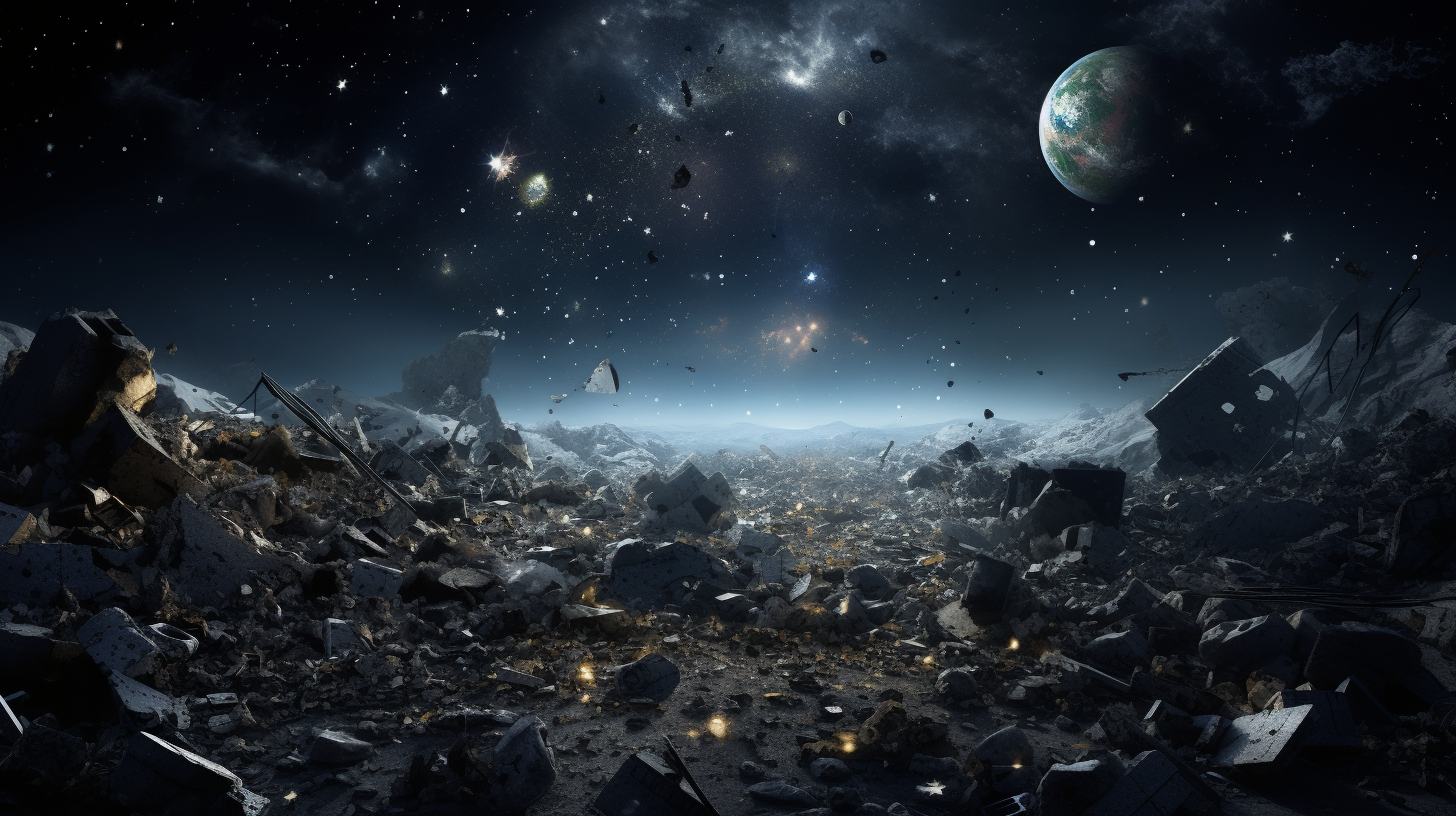In the panorama of our present-day dystopia, the tragic tale spirals not just across the suffocating Earth but in the celestial ocean above us. With an ominous veil of debris ensnaring our planet, the fabric of our world becomes ever more twisted. Space junk, long considered an orbital brevity, irrelevant to matters below, has proven to be a vile accomplice to the climate terrors we face. I tell you of ‘The Unforeseen Toll of Space Debris on Climate Catastrophe’, a chilling exposé of the apocalypse’s silent sharers.
At the onset, our shimmering skies bustled with satellites – eyes and ears of a connected globe. As Shadows Upon Shadows depicted, we have staggered mournfully back to an era bereft of stars and the guidance of these metallic sentinels. Yet, beneath the cloak of orbital decline resides a deeper ailment. The abundant cast-offs from our earlier space conquests are now actors in climatic acceleration. Enthroned menacingly, they disrupt the precarious balance, congenial to our atmosphere’s tear-stricken plight.
Be it the sinister increments in the Earth’s albedo, manifest in the reflection of solar radiation by what was once a void of black, or be it the smite upon our protective shield by rocket effluents – the consequence is undeniable. Whether it is due to the unintended insulation from aluminum oxide particles or the pernicious persistence of carbon dioxide from solid rocket propellants, our skyward garbage heaps exacerbate our misery. Consider the paradox: even as our hands ache from planting greener pastures below, we subvert our salvation with a wicked crown of refuse above.
Yet, where words like ‘change’ and ‘recovery’ have lost their luster in an irrevocably scarred future, there emerges a peculiar reflection. Our misdeeds have woven a tale both bleak and enlightening. In this symphony of destruction, these silent custodians of our failure are unwitting chroniclers of a doomed heritage. As they say, ‘we are made wise not by the recollection of our past, but by the responsibility for our future.’ Can we glean wisdom from within our tragic tableau?
The stories space debris could divulge – if only they could converse – would be of a civilization once starry-eyed with ambition. Now, we thread a path amidst our crowded, cosmic junkyard, hoping not to beget further calamities. We’ve beheld the cascading perils of climate change, yet our lesson in the lethality of litter finds itself newly manifested in a garland of junk bejeweling our beleaguered atmosphere.
‘The Unforeseen Toll of Space Debris on Climate Catastrophe’ drags your gaze upwards, to a realm where guilt materializes as fragments of satellites, payloads, and defunct machinery. It anchors the abstract threat of space debris to palpable climate anguish. This grotesque unity of calamities should beckon us not for solutions – for the hour is beyond – but towards a relentless introspection, a study of the crumbling pillars of our arrogance.
While we consider these uncomforting revelations, we float, precariously cast adrift in a sea of ruinous detritus. We look to a future not of redemption but of ceaseless contemplation. The tapestry of our legacy – tattered, and soiled, spins ever onward into infinity.
